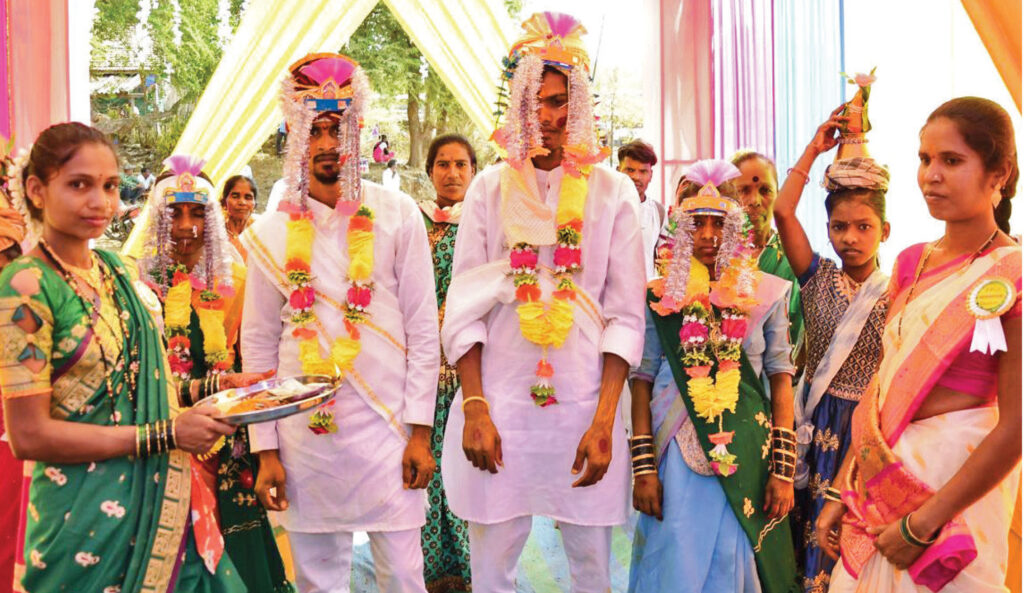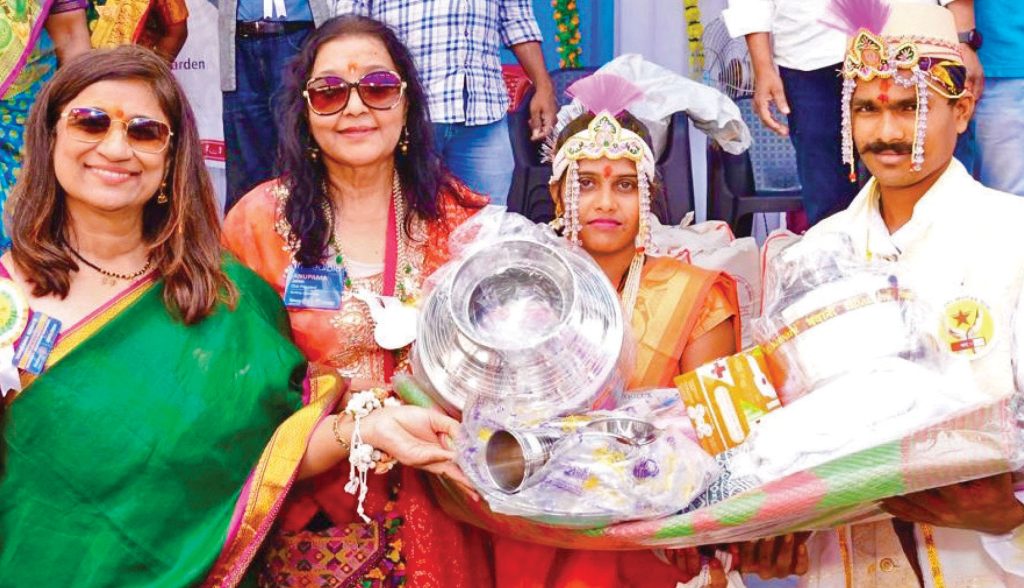RC Bombay Queen City, RID 3141, through its interactions with the Yuva Parivarthan, a Mumbai-based NGO, discovered a concerning situation in Kasa village, Palghar, near Mumbai. The tribal community there had no concept of formal marriage, leading to complex legal and social issues for couples and their children. Adults and children lacked identity documents, which meant they cannot access schools, jobs, or basic services of the government.

“We also became acutely aware of the fact that children born to tribal couples were suffering from lack of formal recognition. This absence of status had severe repercussions: they were being denied schooling and healthcare because their parentage was not legally established,” explains Anupama Jalan, president of RC Bombay Queen City. Recognising the profound impact that formal marriage could have on the tribals’ lives, the club decided to fund weddings for these couples.
We also became acutely aware of the fact that children born to tribal couples couples were suffering from lack of formal recognition. They were being denied schooling and healthcare because their parentage was not legally established.
– Anupama Jalan, president, RC Bombay Queen City
The cost of arranging a wedding for one tribal couple was ₹6,000, which was beyond the reach of many in this community. To address this, five Rotary clubs — Bombay Queen City, Mumbai West End, Bombay Hanging Garden, Bombay Metropolitan and Chembur — came together and spent six months planning a mass wedding ceremony for 118 tribal couples, “investing considerable resources and effort. Our members personally attended to the logistics and took a train to be present at the event, ensuring that everything proceeded smoothly,” she adds. RC Bombay Queen City funded 111 weddings.
The venue for the mass wedding was the village school, beautifully decorated with flowers and complete with tents for serving food and seating for the guests. The clubs provided wedding attire for the brides and grooms, mangalsutras, makeup kits for the brides, and essential ceremonial items like white cloth for marriage rituals, garlands, and sehra (a headdress worn during a wedding) for the grooms.

Understanding the need to start their married lives with basic necessities, the clubs also provided domestic items such as bedsheets, chatai mats, and utensils. To ensure a warm and inclusive atmosphere, the clubs hosted a marriage feast for 5,000 relatives and friends.
The wedding ceremony was followed by the presentation of marriage certificates by the village tahsildar, granting legal legitimacy to couples’ union. In addition, each couple received ₹10,000 from the district collector’s office at Palghar to help them start their new lives.
The Rotary clubs also organised a polio vaccination drive for newborns and children under age five in the village after the weddings.





